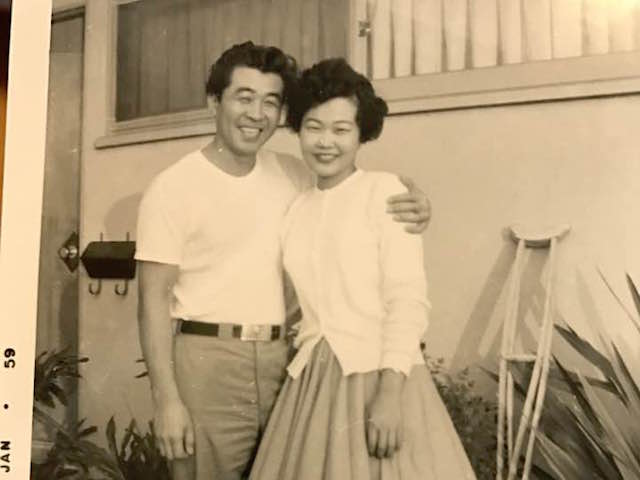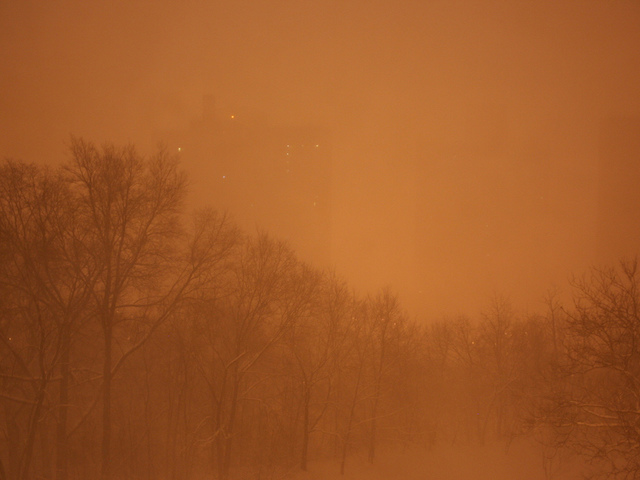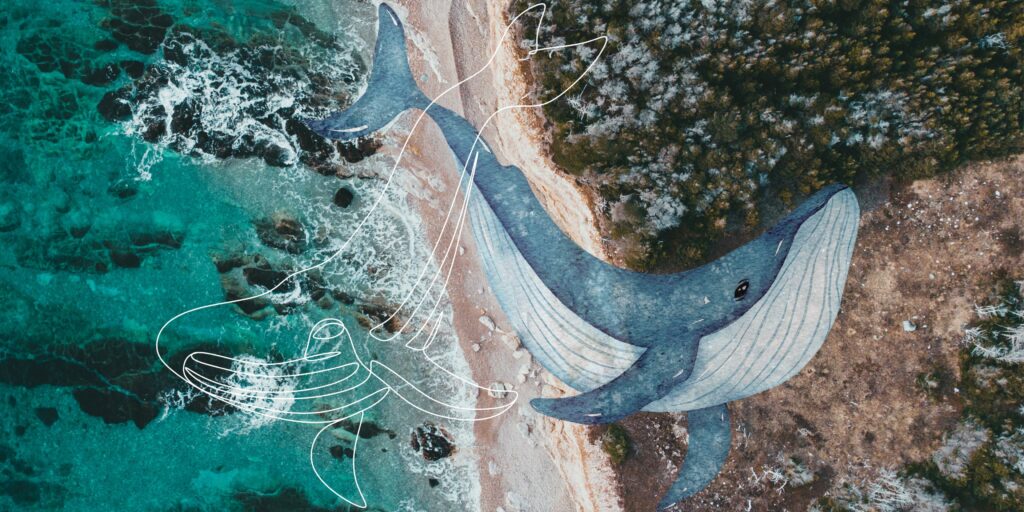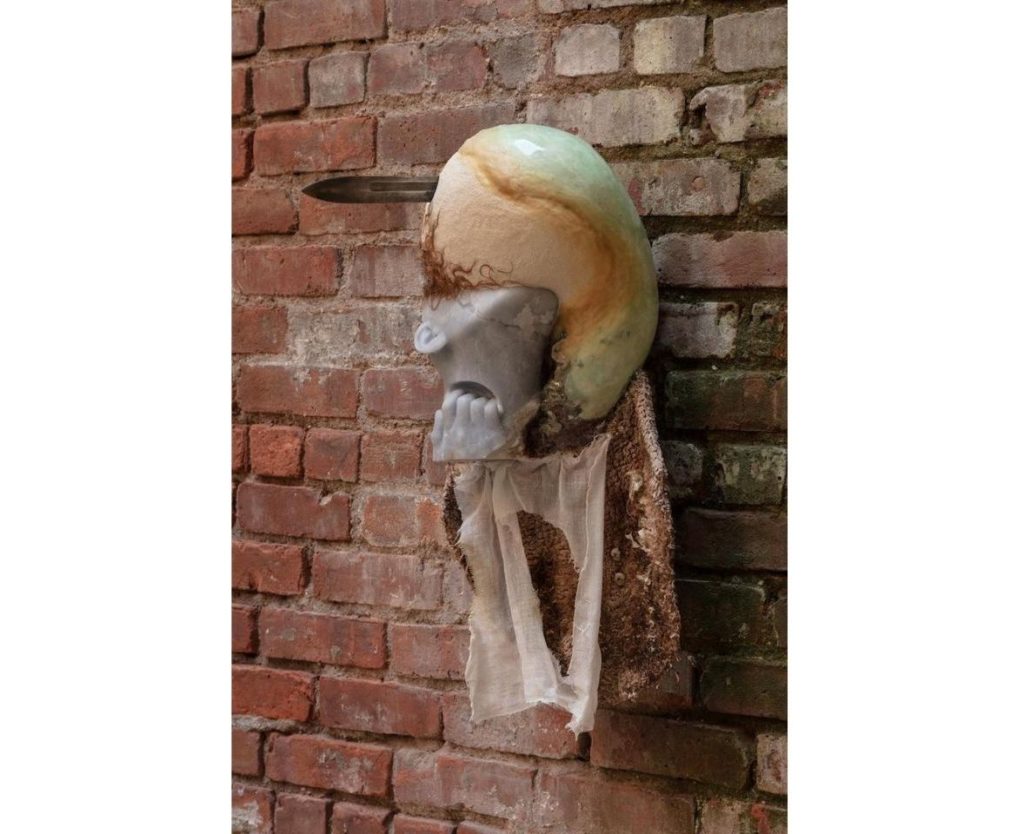As Election Day approaches, remembering the story of my parents’ immigrant survival, from Japanese internment to community activism, proves more important than ever.

November 7, 2016
Content warning for sexual violence
It was 1999, and I was working at a publishing house in midtown Manhattan. I was on my lunch break when I walked past a construction site near the New York Public Library. Above me, a male voice called out, “Yellow pussy! Hey, yellow pussy!”
Now some people might think that I’d asked for it because I was carrying a yellow knock-off Hello Kitty umbrella to ward off the rain. It was around the time when young Asian women like me were reclaiming Hello Kitty as a proud symbol of our cultural identity. We hoped to imbue the feline—and our Asian selves—with punk rock cool the way the seminal ‘zine Giant Robot and bands like Cibo Matto were doing. When I was in elementary school, my classmates and I carried perfumed Hello Kitty pencils and erasers, swapping them at recess and after school the way my eight-year-old son now swaps Pokemon cards. Why shouldn’t I carry an umbrella like this?
Only the guy at the construction site had a different take. He was so pleased with his own cleverness that he repeated it again and again, calling “yellow pussy” after me as I walked down the street. I was mortified and kept walking. Cheeks burning, I shouted back an angry but ultimately unsatisfying, “Fuck you, asshole!” I don’t remember if any of the other guys on the crew joined him, but they definitely laughed.
Seventeen years later, reading about New York Times reporter Michael Luo’s encounter with the woman who told him and his family to “go back to China… go back to your fucking country” reawakened the anger and humiliation I felt that day. Will Asian Americans or anyone with the “wrong” color skin ever truly be accepted as equal citizens? And what does it mean for women if a presidential candidate’s “grab them by the pussy” comments are deemed acceptable “locker room talk”?
Less than a year ago, it seemed absurd that the United States might elect a man who openly espouses a platform of exclusionism and brazenly denigrates women and minorities. Now, like untold millions across this country and around the world, I am anxious about the outcome of Tuesday’s election. Might we elect a man poised to sweep away decades of progress and grant new legitimacy to racial hatred and sexual assault? Have we as a nation so quickly forgotten the lessons of our recent past? I have spent the last decade working as a freelance writer, helping to tell other people’s stories. It’s a vocation that suits my preference for anonymity, but I cannot keep silent with so much at stake.
I am the child of an immigrant and an American citizen. My mom was a twice-orphaned Tokyo native who married an American GI in the wake of World War II. When she landed in rural Missouri around 1956, a local newspaper announced the arrival of a real, live Jap. She told me people drove out to her husband’s farm and parked to catch a look at her and that her brother-in-law tried to rape her because he wanted to see if her vagina was slanted like her eyes. Maybe he succeeded. She wouldn’t have told me if he had.
She eventually left her husband and Missouri, saving up her earnings at a local bologna plant. She took my then toddler-age half-brother, George, to Los Angeles, where she heard there were more Japanese. She never ate bologna again.
My dad was one of eight kids born to Japanese immigrants in Long Beach, California. Unlike the current stereotype of Asian over-achievers, academics weren’t a priority for dad’s family. He spent his childhood fishing and playing pick-up games in the street. Like many Nisei (second generation), he spoke a kind of pidgin Japanese and had never been to Japan. Then in 1942, Franklin D. Roosevelt’s Executive Order 9066 decreed that everyone of Japanese descent—young kids, old folks, and everyone in-between—be rounded up in the name of national security. My dad and his family were among the 19,000 people to be temporarily incarcerated in the horse stalls at Santa Anita racetrack. They would be there for months while the permanent camps were built. None of them had any idea how long they would be held or if a worse fate lay in store.
In 1942, dad was a high school senior. After graduation, he and his family packed up everything they had into one suitcase per person and got on a bus to Santa Anita. For many Japanese Americans, the internment was a tragedy from which they would never recover. Dad, however, was just eighteen: young, resilient, and probably a little foolish. (He sometimes lamented the loss of his inaugural issue of the Superman comic series.) One night, he and some of his friends got bored with nights stuck in horse stalls and decided to hop the fence and walk into town to catch a movie. When it was over, they had nowhere else to go and headed back to Santa Anita only to get caught breaking back in.
The guards suspected that my dad and his pals were actually Japanese agents trying to infiltrate the camp. Despite evidence to the contrary, dad was tagged as a troublemaker and separated from his family, getting sent to Poston, Arizona instead of Jerome, Arkansas. Sometime towards the end of the war, dad enlisted to “prove his loyalty.” He didn’t see much action, but it got him out of the camp and he got to see a little of the world before returning to Los Angeles.
The story of how my parents met reads like a B-movie script. It was the late 1950s. He was a truck driver and she was working as a waitress in LA’s Little Tokyo. After eating at the restaurant where she was working, he offered to give her and another waitress a ride home. Dad was a little hot-tempered or tanki wa sonki as mom would say. On the way, another car cut them off. I’m not sure exactly what happened next, but somehow dad—who used to carry a knife in his boot in case of hijackers—and the other driver began fighting with knives on the side of the road. In the melee, he got injured and wound up on crutches. Mom took care of him during his convalescence.
She moved in with dad, bringing George with her. After her divorce was final, they married in Las Vegas on February 13th, 1959. I used to ask her why they didn’t wait one more day and she’d reply they didn’t realize the next day was Valentine’s Day. My brother Jeff was born in 1961, and I came along unexpectedly eight years later. Dad was a teamster and on the road a lot. Mom stayed home and although she didn’t hold a job, she worked non-stop. She made all our clothes, raised fruits and vegetables in our garden, and cooked our meals. When the house needed repainting, she did it all—interior and exterior—by herself.
Dad’s CB handle was “the Buddha” and he may have been a bad ass outside of the house, but he knew who ruled the roost. Mom controlled our home—including the family’s finances—with an iron fist. In the years before direct deposit, he would sign his paycheck over to her and receive his bi-monthly “allowance.” Apparently he had been profligate before they married, buying snazzy clothes and cars instead of saving. She told me that wives handled the money in Japan. I have no idea if that’s true, but they probably wouldn’t have been able to buy a home without her strict discipline.
Aside from this and a few indelible culinary habits, however, my mother largely embraced life in her adopted country. She learned to drive and curse like the truck driver she married. When I was born, she gave me a solid American name that she couldn’t pronounce and, having lost the battle coercing my two older brothers into learning Japanese, decided that it wasn’t really important for me to know anyway. In fact, my parents reasoned, it might inflect my English with an undesirable accent.
She also became a citizen and exercised her right to vote in every election, including in 2000 when she cast her ballot for Ralph Nader. In the 1980s, mom and dad became very involved in the movement for Japanese American redress and reparations. I like to think that if it had been a few years earlier, I would have happily accompanied them to all the meetings and rallies. When I was a little younger, one of my mom’s friends dubbed me kingyo no unko or goldfish poop, as I was always trailing along after her. As it was, I was in my sullen adolescence and resented their every incursion into my time and privacy. I was, frankly, bored by my parents’ preoccupation with events that had occurred decades earlier. Everything had turned out okay, why were they still obsessed with the past?
Behind its formidable sounding name, the National Coalition for Redress and Reparations (NCRR) was a grassroots organization that took its inspiration from the broader Civil Rights movements of the 1960s and 1970s. After World War II was over and they were released from the camps, most of the 120,000 Japanese internees—despite having no homes or jobs to return to—wanted to forget the shame and suffering they’d endured and move on. Dad, a natural rabble-rouser, was intrigued by this group of mostly younger activists who began organizing in 1980 to demand financial reparations and a formal apology from the United States government. In addition to advocating for the individuals affected, the NCRR sought and continues “to educate the general public about this tragedy so as to prevent such events from happening again.”
Weekend days that had been spent going to the grocery store and fishmonger in Little Tokyo used to culminate in a trip to Mikawaya for snow cones, rainbow for me and red bean for mom, before heading back home to the San Gabriel Valley. After my parents became involved with the NCRR, our quotidian errands were prefaced by what felt like interminable meetings listening to former internees reminisce about their camp experiences and organizers plot out petitions and class action lawsuits. I would hunch in the back, headphones on, restless to escape.
On dad’s rare days off, he would write—literally write, in his neat, even longhand—letters to the editor of the Rafu Shimpo and the Los Angeles Times, “respectfully” rebuking journalists and politicians who opposed reparations. I never once asked to read what he wrote, instead sitting with my head buried in a novel and day-dreaming of the places I would go once I was old enough to leave. When Ronald Reagan—not my parents’ favorite president—signed the Civil Liberties Act of 1988, I was gone.
If there’s one thing I could go back in time and correct, it’s this. I wish I could go back and tell dad I’m sorry. I’m sorry he was interned. I’m sorry he lost part of his youth, part of his life. And I’m sorry I dismissed his and mom’s participation in a crusade that, I eventually understood means a lot—not just to him and everyone who suffered the loss of their dignity, property, and Constitutional rights—but to me and my children and future generations who need to know what happened once in America, land of the free.
Dad died at the age of 66 when I was 21. His death was not altogether unexpected and the details are another story. Suffice it to say, I was far away when an ambulance took him on his final drive. Mom called me on October 30 to tell me he was in the hospital and I needed to fly home immediately. I spent Halloween that year in transit through three airports. When I arrived back in LA, I learned he was already dead by the time she made the call.
My relationship with mom ebbed and flowed over the next two decades. She was not an easy woman, and while I knew she had suffered brutality and loss during her early years, I didn’t understand why she couldn’t enjoy peace and prosperity when she finally achieved it. Only after I became a mother myself did I begin to comprehend how tragedy had left her not broken, but profoundly bowed. I also began to appreciate the depth of love she felt for me and how she made a heart-breaking series of missteps in hopes of protecting me from a world that had shown her its darkest side. A few months after my second child was born, she reached out to me and we achieved a kind of peace with an unspoken agreement not to discuss our rocky history. Shortly after, her health began to decline and mom eventually found the oblivion she had longed for my entire conscious life.
She died four years ago on October 29, 2012. The next day, October 30, marked the 26th anniversary of dad’s death. This time of year is filled with ghosts for me; my life sentence of guilt and grief annually punctuated by Halloween’s gaudy parody of horror. If I were in LA, I would take mom some manju, clean their headstones, and pour a beer over dad’s grave. Instead, I sent flowers to the sunny hillside where their ashes are interred, but it’s a convention that my mom, at least, had little use for. And this year it doesn’t feel like enough.
My parents hoped my perfect English and American name would shield me from the kind of racism and xenophobia they experienced. And, aside from the persistent “Ni hao’s” (umm, I’m not Chinese) and questions about “No, where are you really from,” (California, dude!) I largely have been protected. But there are too many “Others” of every stripe who are not so fortunate.
The hot dog man in my small New York town displayed a sign reading “Trump That Bitch” on the cart he set up across the street from the local mosque, and that’s his right. I only fear it signals a desire to strip others of theirs. So, with the election only a few hours away I pay tribute to my parents by offering their story and my own experience as a “yellow pussy” as a reminder of what happens when we allow ourselves to become indifferent to our common humanity. While mom and dad taught me it’s important to have gaman and stoically endure whatever life throws your way, they also taught me that sometimes it’s necessary to call bullshit and say enough. How many more lives and families must be fractured and broken before we change our words, our actions, our attitudes? It’s time to move on. #ThisIs2016



